Eradicating Poverty
Freedom's Champion: Aimable Manirakiza
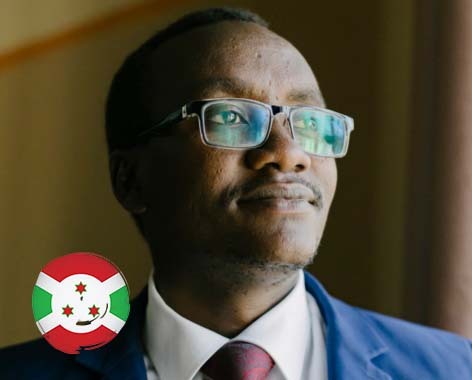

In the small east-central African country of Burundi, hope can be hard to find. A history of colonization, genocide, and political instability have left the population among the poorest in the world. Despite those challenges, Aimable Manirakiza sees a bright future ahead for his country. For him, part of reaching that future is convincing Burundians that there is hope to achieve it. Hope, he says, gives people the power to imagine something better and to work to make it real. Hope is what inspired him to found a think tank, Centre for Development and Enterprises Great Lakes (CDE), which has led the way to policy change allowing millions of Burundians to experience greater human dignity and economic freedom.
When the president of Burundi sought an unconstitutional third term in office in 2015, Aimable joined a peaceful protest movement that sprang up in the country. After several of his friends were imprisoned or killed by government forces, and he received threats against his life, he was forced to flee to Kenya as a refugee. While in Kenya, Aimable met Atlas Network’s Dr. Tom G. Palmer at an event hosted by African Students for Liberty. At the event, he received a French translation of Dr. Palmer’s book, The Morality of Capitalism, which had a profound impact on Aimable’s thinking.
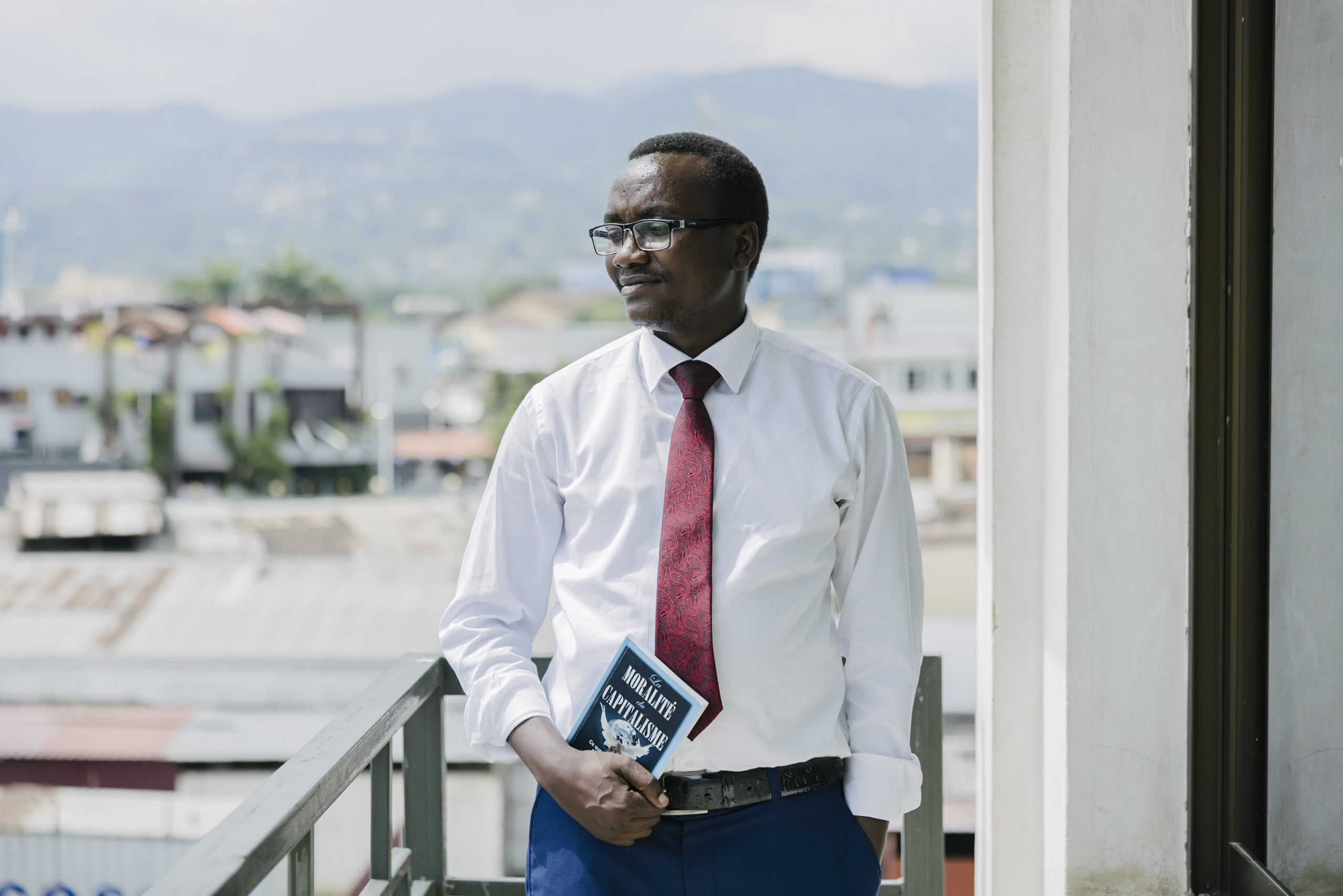
The Morality of Capitalism introduced Aimable to a new way of looking at his country’s problems. Instead of continuing the cycle of more government control, more violence, and more poverty, Aimable realized that what Burundi truly needed was a respect for individual liberty and self-determination. Economic freedom promised a way out of poverty that traditional foreign aid and government programs had failed to provide. He was inspired. Finally, he had found a reason to hope.
“Before leaving my country, there weren’t really any ideas. People thought more about violence than about changing things.”
Despite continued risks to his safety, Aimable returned to Burundi, and in 2017 he founded Centre for Development and Enterprises Great Lakes to advance classical liberal policy solutions to the country's most pressing issues. Supported in part by Atlas Network grants, Aimable has already led CDE to significant victories. In 2021, Burundi’s legislature adopted recommendations from the think tank that enabled small and medium businesses to join the formal economy. A streamlined business registration process granted entrepreneurs access to financial institutions and guaranteed their safety from law enforcement. CDE’s policies also helped cross-border traders, many of whom are women, by reducing the number of bureaucratic, and often dangerous, border stations they had to pass through from 19 to one.
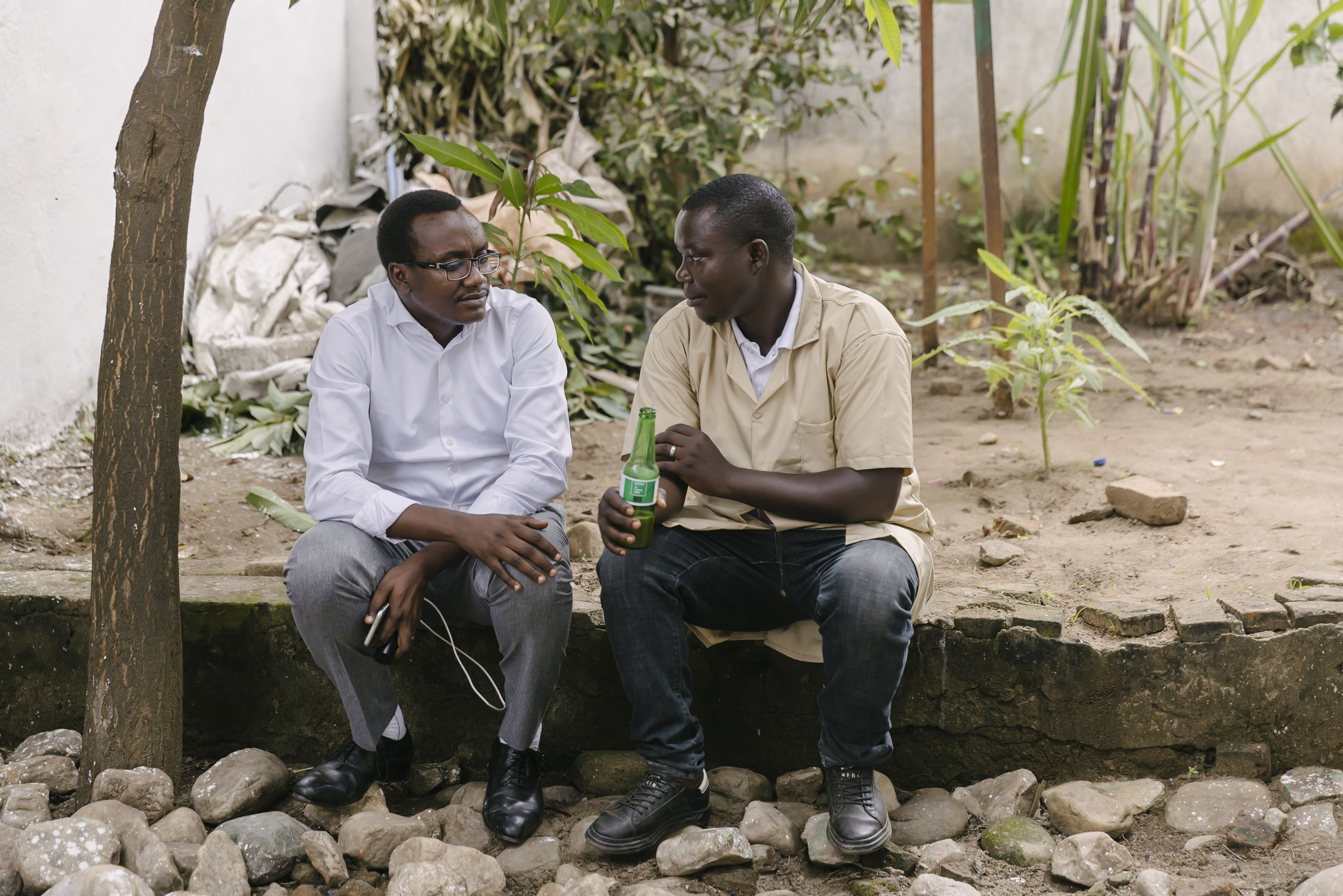
As Aimable has continued to raise the bar for what public policy think tanks can achieve in Africa and around the world, Atlas Network has raised its investment in his stellar work advancing individual rights. Under Aimable’s leadership, CDE became a finalist for Atlas Network’s prestigious Templeton Freedom Award in 2019 and 2021, earning grant awards supported by the Templeton Religion Trust. And in late 2022, CDE was selected to join Atlas Network’s Smart Bets class, a group of organizations that represent the freedom movement’s rising stars and superstars. Smart Bets gain access to exclusive grant opportunities, mentorship programs, and collaboration with other high-performing think tank leaders. In addition to attending Atlas Network Academy’s Executive Accelerator program in the United States, Aimable’s pitch to potential donors at the Liberty Forum Investors Summit in New York earned CDE a US$25,000 grant award.
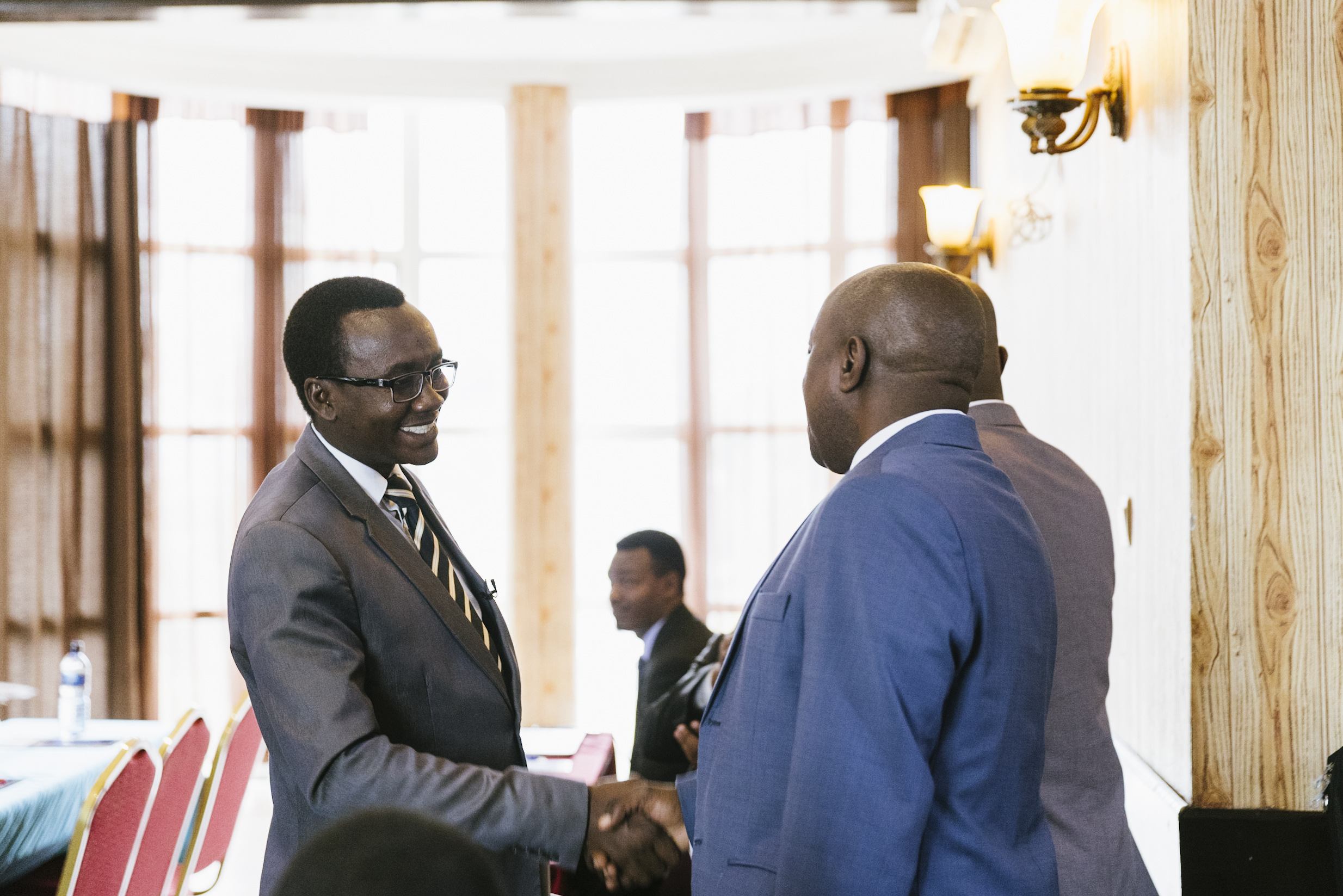
Thanks to Aimable's leadership, Burundi’s long road to freedom and prosperity is not as long as it was. CDE has already established a proven track record, and their potential continues to grow. The work is often difficult, and it is not free of personal risk for CDE’s team, but Aimable’s commitment to ending the country’s cycle of poverty and to showing fellow Burundians that there is reason to hope drives him in his work toward a better world.
“If today I manage to persevere in the face of threats, to persevere in the face of different challenges, it’s because I believe in the future.”

Explore more stories
View All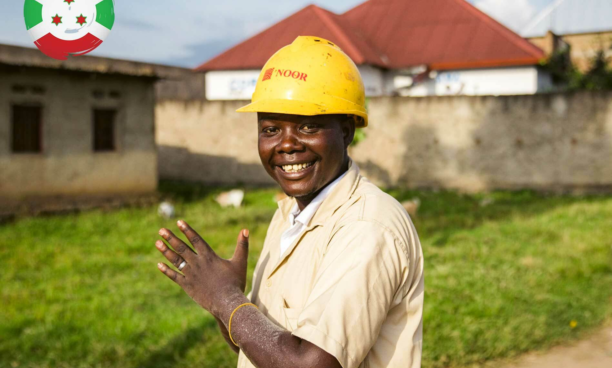
- Unleashing EntrepreneurshipWomen Are Doing Wonders With Open TradeIn the small east-central African nation of Burundi, many women make a living by trading goods with people in the neighboring countries of Rwanda, Tanzania, and the Democratic Republic of the Congo (DRC). These savvy entrepreneurs comb Burundi’s street markets for the deals of the day, relying on hard-won experience as to what will sell. The hardest part hasn’t always been finding a good deal, however. Until recently, crossing the border was a difficult, expensive, and dangerous process, putting traders at the mercy of the whims of border guards. Thanks to a local Atlas Network partner, that situation has changed for the better.Read Story